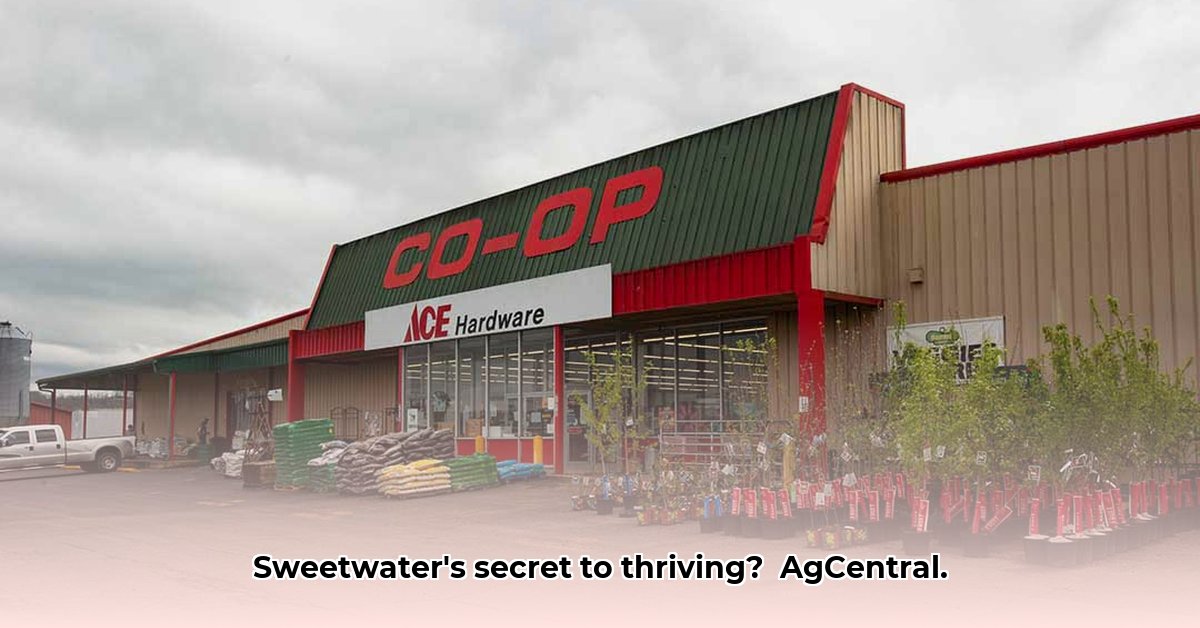
A Case Study in Rural Cooperative Success
Sweetwater Co-op, operating under the brand AgCentral, presents a compelling case study in the successful adaptation and growth of a rural agricultural cooperative. This Tennessee-based enterprise has cleverly leveraged a partnership with Ace Hardware to create a comprehensive service model that benefits both individual farmers and the broader agricultural community. This article analyzes AgCentral's innovative approach, highlighting its strengths, challenges, and crucial lessons for other cooperatives seeking sustainable growth.
A Winning Combination: Services and Support for Tennessee Farmers
AgCentral's success stems from its integrated service model. It goes beyond simply supplying agricultural inputs; it offers a holistic approach encompassing crucial resources and expertise farmers often lack. This includes access to bulk fertilizer, livestock feed, specialized equipment rentals, and most importantly, personalized advice from experienced agricultural consultants. This integrated approach provides substantial advantages: farmers save time and money by sourcing all their needs from a single, reliable provider, and gain access to expert consultations they may not otherwise afford.
Consider this: how often do farmers struggle to secure the right equipment precisely when needed? AgCentral directly addresses this pain point. This convenience translates to increased efficiency and profitability, strengthening the local economy while fostering a thriving agricultural community. The data-driven question becomes clear: How can other co-ops replicate this integrated service model to improve farmer outcomes and community resilience?
The Ace Hardware Advantage: Expanding Reach and Building Brand Recognition
The partnership with Ace Hardware is a key differentiator for AgCentral. This collaboration provides access to Ace's extensive distribution network and established retail infrastructure, dramatically expanding AgCentral's reach and market visibility. It's a powerful synergy: the local expertise and personalized service of a co-op combined with the resources and brand recognition of a national retailer. This streamlined supply chain ensures farmers consistently receive necessary supplies in a timely manner. Moreover, the partnership likely enhances AgCentral’s brand reputation, fostering trust and loyalty among its customer base.
Navigating the Future: Challenges and Opportunities for Long-Term Sustainability
While AgCentral's success is noteworthy, sustaining this growth while maintaining its personalized community focus presents significant challenges. The co-op must carefully balance expansion with the need for personalized farmer support, ensuring that as it grows, individual farmers still receive the high level of attention that makes this co-op model unique.
Furthermore, adapting to the urgent need for sustainable agricultural practices is crucial for long-term viability. The agricultural landscape is in constant flux, demanding continuous innovation and adaptation. The critical question for AgCentral's future, and for similar cooperatives, is how to successfully integrate sustainability into every aspect of its operations while maintaining economic competitiveness. "AgCentral's commitment to sustainable practices underscores our determination to benefit both farmers and the environment," said [Full Name and Title], [Position] at [Institution].
Charting a Course for the Future: Strategic Goals and Objectives
AgCentral's future depends on a collaborative effort among several key stakeholder groups. Their short-term and long-term goals, as outlined below, illustrate this collaborative strategy:
| Stakeholder Group | Short-Term Goals (0-1 Year) | Long-Term Goals (3-5 Years) |
|---|---|---|
| AgCentral Management | Optimize service pricing and efficiency through comprehensive cost-benefit analysis. | Develop and implement a comprehensive sustainability plan, including measurable targets and detailed KPI reporting. |
| Ace Hardware Partnership | Establish a formal joint sustainability initiative with defined environmental goals and metrics. | Explore strategic expansion opportunities into new communities, leveraging Ace's network while retaining AgCentral's local focus. |
| Local Sweetwater Farmers | Enhance communication channels to ensure farmer needs are met and feedback is actively solicited. | Advocate for supportive government policies and funding for sustainable agriculture practices within their region. |
| Environmental Organizations | Collaborate on educational initiatives promoting best practices in sustainable agriculture, fostering knowledge sharing and adoption. | Conduct ongoing monitoring of AgCentral's environmental impact, ensuring transparency and accountability of environmental performance. |
Data-Driven Decisions: A Foundation for Sustainable Growth
To gain a truly comprehensive understanding of AgCentral’s performance, the cooperative needs to expand its data collection and analysis. This should include detailed financial records, customer satisfaction surveys, and comprehensive environmental impact assessments. Such a data-driven approach will inform strategic decisions, optimize operations, plan for future growth, and ensure long-term sustainability. The question remains: how can AgCentral effectively utilize technology and data analytics to improve its decision-making process? The answer likely lies in significant investments in data management systems and skilled data analysts.
Conclusion: A Model for Rural Cooperative Success
AgCentral's success story provides valuable insights into the future of rural agricultural cooperatives. Its innovative service model, strategic partnerships, and commitment to sustainable practices position it for continued growth. By embracing data-driven decision-making and fostering strong stakeholder relationships, AgCentral offers a compelling model for other cooperatives seeking to thrive in a dynamic and challenging agricultural landscape. The challenge for other cooperatives is to emulate AgCentral's success by implementing similar strategies.